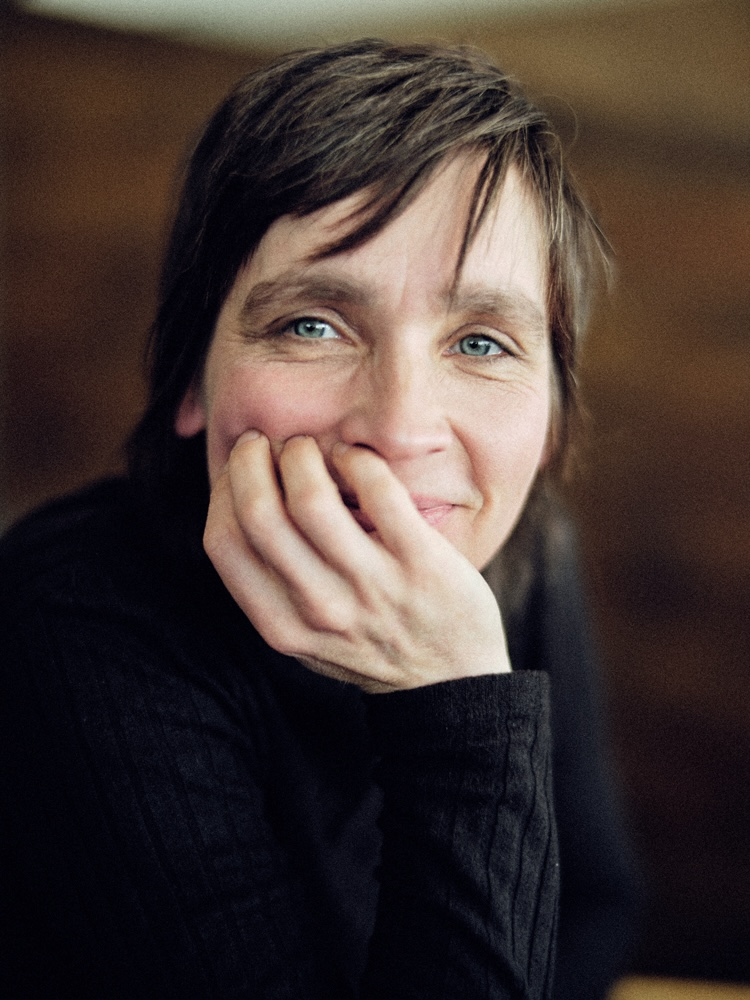Right now, Diesing is mainly busy with the new series Máxima, that will air on Videoland from April 20th. We talk about the final stages of production, her career so far, and the new wave of filmmakers.
You are currently working on the new Videoland series Máxima. How is the production process going?
Saskia: 'It's pretty hectic, because we're working on multiple fronts at once. For example, we're wrapping up episodes 1 and 2 for the premiere, and while we’re also working on music and sound. It's an ongoing process where we constantly have to look ahead.'
How did you get involved in this series?
Saskia: 'I was approached by producer Rachel van Bommel. It surprised me, because I normally have more affinity with arthouse than with commercial productions like this one.'
'I had some doubts about it, especially because I have little interest in the Royal Family, and I really wanted to tell the full story of Máxima. Fortunately, we agreed that, for example, her father's political past should not be swept under the rug. But it was actually my husband who really convinced me. He said, 'That story of Máxima might just suit you.' And he really likes Máxima, so that eventually convinced me.'
What is the series about?
Saskia: 'It's actually a coming-of-age story. The focus is not so much on the royal family itself, but more on someone who ends up in that family, namely Máxima. We see everything from her perspective, her first encounters and the dilemmas she gets to face, such as loyalty to her family versus her love for Willem-Alexander. It's a universal story about (impossible) love, loyalty, and cultural differences, that happens to take place in the public domain of the royal family.'
'The members of the royal family have already said that they won't watch the series, but I have my doubts about that. Officially, they can't react to it because it's fiction, and it's impossible for them to respond to everything. I think the princesses might be the most eager to watch: the story of their young mother with whom they undoubtedly can identify. During the filming process and the editing, I was very careful that it all would remain tasteful and respectful, knowing that the princesses could also see it. That was always in the back of my mind.'
How did you get into the film industry yourself?
Saskia: 'After graduating (ed. Audiovisual Media at HKU), I worked for seven years for the Dutch TV broadcaster VPRO as a program maker and editor. I was always interested in teaching and eventually started doing that as well. I have always emphasized that besides teaching, I also want to continue making films because otherwise, I feel that teaching is pointless. I think it's important to have both theoretical knowledge and practical experience and to pass that on to my students.'
What do you take from your practical experience in the film industry to your role as a teacher?
Saskia: 'I mainly try to teach my students how they can effectively tell their stories and how to be flexible in the creative process. It's not just about telling personal stories, but also about making well-crafted stories that appeal to a broad audience.'
'I also like to take interns to the set so they can see what it's like in practice.'
Do you see differences between the generations of film students from before and today?
Saskia: 'Definitely. The current generation of students seems to put more emphasis on self-expression and personal themes, while my generation had more of a need for craft skills and expertise. I think it's important to find a balance between self-expression and craftsmanship, so that students can tell both personal and universal stories.'
'Furthermore, I notice that people have currently grown a bit tired of serious themes in films and series, due to the uncertainties and problems in the world. There is more need for escapism and lighter content, which is also evident from the popularity of series like One Day.'
'Ultimately, it's about owning your creations and having fun in the process. I absolutely see opportunities for that, especially for the new generation.'
Which series or films have stuck with you lately?
Saskia: 'I'm a fan of classics such as The Wire, but was also impressed by the film Triangle of Sadness because of the successful satire and spectacle. Furthermore, I think the new streaming productions Saltburn and One Day are also very well-made. I think it's important for filmmakers to continue experimenting and exploring different genres and styles.'
What are your plans for the future?
Saskia: 'I am currently involved in various projects, including coaching programmes for former students working on their first feature film, and I am working on a new arthouse film. So, it's busy for now, but I will definitely come back to HKU!'

Photo by Annelien Nijland
Máxima will be available on Videoland from April 20, 2024, and tells the life story of Queen Máxima in Argentina and New York up to her future as Queen of the Netherlands. Argentine actress Delfina Chaves plays the role of Maxima, and Martijn Lakemeier takes on the role of King Willem-Alexander.